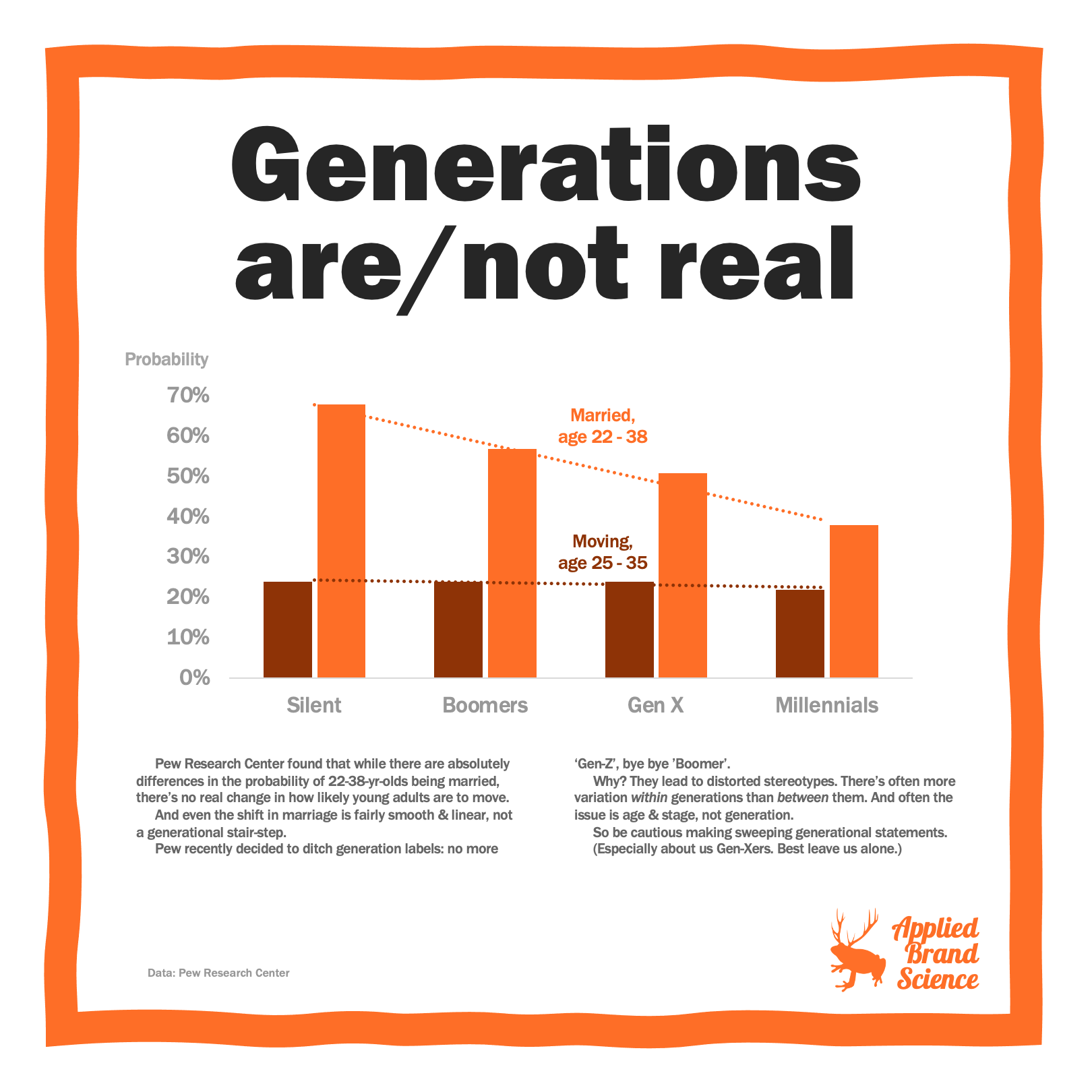Is it time to ditch generational labels?
Like, should we stop making sweeping statements about Gen-Z and Boomers?
TL;DR; mostly yes.
F’rinstance, Pew Research Center found that there are absolutely generational differences in the probability of 22-38-yr-olds being married. The Silent Generation had a 68% chance of being married in that age range, whereas Millennials only have a 38% chance.
But those shifts were basically smooth & LINEAR, not stair-steps based on generation.
And on the other hand, there’s been no real change in how likely young adults are to move over the past 60 years: that number is consistently around 23%. So it’s not that ‘Millennials’ are different: it’s that YOUNG people always move around more than old people.
This is why Pew recently decided to ditch generation labels:
They lead to distorted stereotypes.
There’s often more variation within generations than between them.
Often the issue is age & stage, not generation.
Lots of the science is rubbish.
SO, advice for smart marketers:
Avoid sweeping generational stereotypes. They’re probably wrong.
Always tease apart generation from age or life stage.
Make generational breaks where they make sense, not just because of these magic border years.
Check for variability within gens, not just between them.
And as always, leave Gen-X out of it all. Best not mess with us.
Want more brand science in your life?
★ Keynotes for conferences & offsites.
★ 1-day intensives for your company, leadership team, or marketing team.
★ Multi-day brand science training for your marketing team.
★ Brand strategy projects.
★ Coming soon: Brand Science, The Book!
Call, email, or message us for more brand science tricks & treats.

